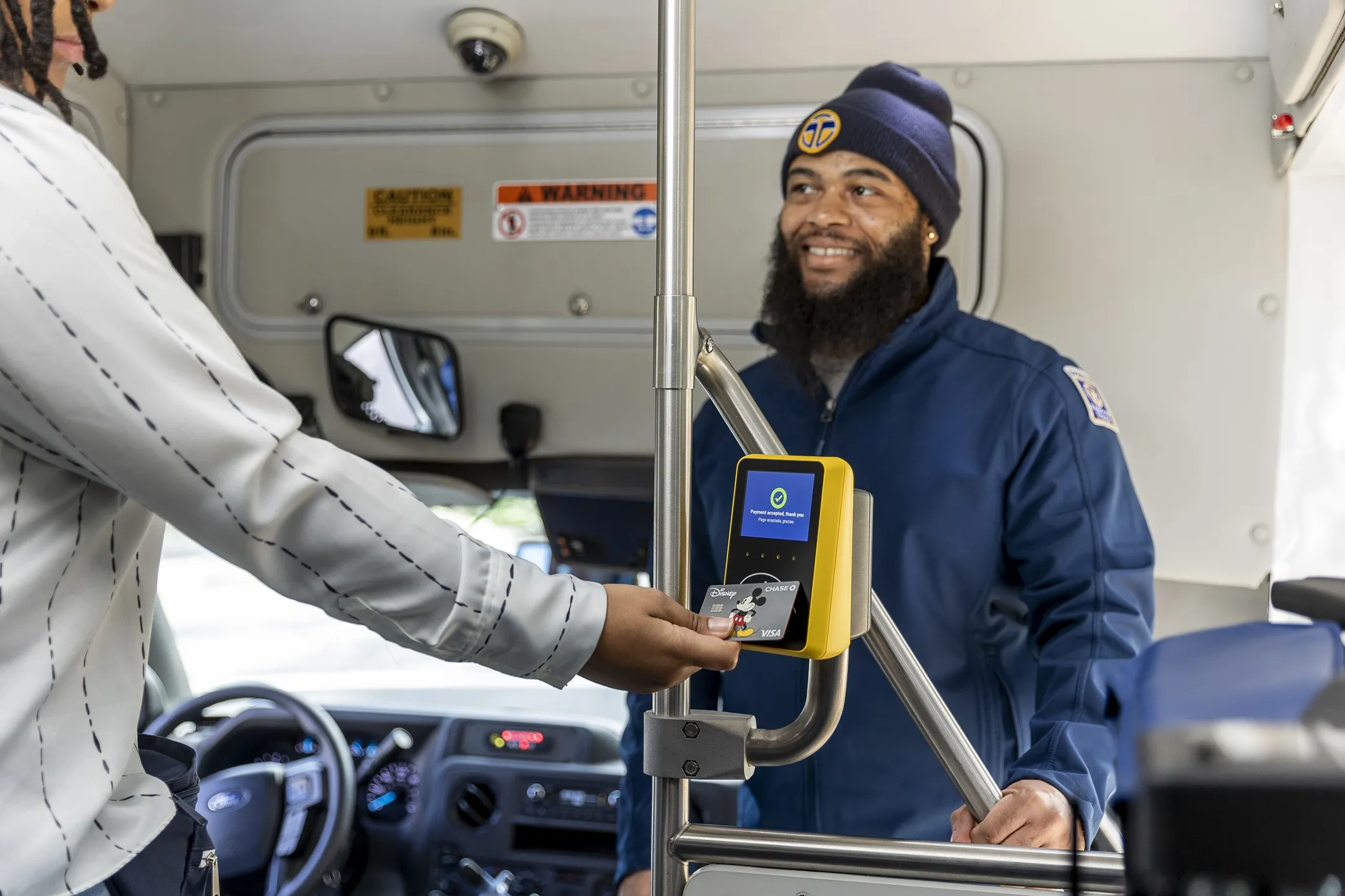
Sacramento Regional Transit District (SacRT) in California has launched a contactless open-loop payment system on its buses and paratransit vehicles.
Later this year, SacRT will introduce what it calls "seamless transfers between buses and light rail using contactless payments".
Kuba, Littlepay and Elavon have delivered the system, which validates riders' payment token and processes fare payments, charging the lowest applicable fare. There are daily price caps and a 90-minute transfer window which is designed to add flexibility for users.
Passengers tap on a Kuba fare validator with a contactless debit or credit card, or a mobile wallet, such as Apple Pay or Google Pay.
As well as the convenience of tap-and-go payments, Kuba says services run more efficiently, with dwell times cut by up to half when riders tap to ride compared to paying by cash. Fare payments can also be tracked, giving agencies insights into ridership patterns, which enables service optimisation.
“At SacRT, we are dedicated to enhancing the rider experience through innovation and convenience," said SacRT general manager/CEO Henry Li.
"The launch of Tap2Ride reflects our commitment to providing a modern, efficient fare payment option that simplifies travel for all riders. By embracing contactless technology, we’re making transit more accessible, secure and user-friendly."
SacRT procured its new fare collection system via the California Integrated Travel Project’s (Cal-ITP) Mobility Marketplace, where vendors including Kuba, Littlepay and Elavon have Master Service Agreements (MSAs) to provide their services.
SacRT is also leveraging Cal-ITP Benefits, a tool that enables eligible riders to enroll for discounted fares on bus services to be securely linked to their contactless payment card: seniors, veterans and individuals with disabilities (Medicare cardholders) are eligible for a 50% discount.
Brian Frank, Kuba’s general manager, North America, says: “This sets a new standard for open-loop payment systems across the state and the nation."








